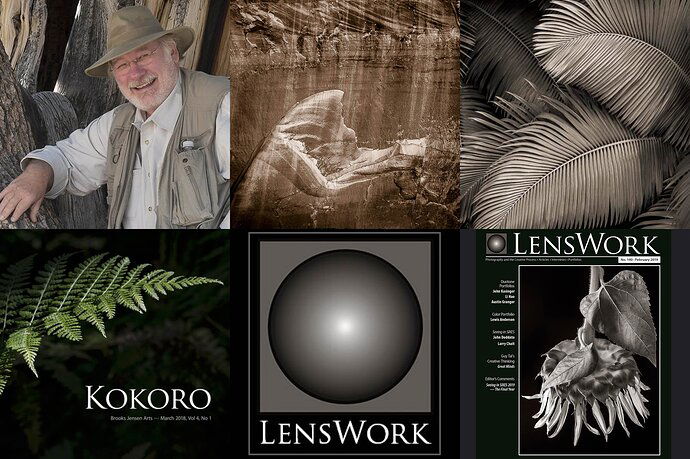Hello NPN members,
No doubt I’m best known as the founder and publisher of LensWork — and I’m proud, thanks to our subscribers in 70 countries, that we are celebrating our 30th anniversary this year! Really, I’m humbled. But truth be told, I was a photographer long before LensWork and I’ll continue to be a photographer until they are throwing dirt in on top of me. Ansel Adams used to talk about “going into the final wash.” I’ve updated that. I’ll continue to be a photographer until I take up my final residence in the ink maintenance tank.
I know it’s theoretically possible to be a fine art photographer without being a landscape photographer, but I’m not sure how. I’ve always been drawn to the landscape, but perhaps for different reasons than most landscape photographers. I hope I make images that have inherent beauty about them, but it’s more important to me that I make photographs that search for truth, for relationships, for meaning, for connection with this moment — the only moment in which we can live. Photography helps us see and remember. More importantly, photography helps us question and seek — maybe even understand. Seeking takes place out there — in the land — as well as in our deeper selves. The pictures are the evidence of our search.
A short comment about my personal work. We inherited a tradition of finely crafted prints on the wall. We inherited a tradition of beautifully printed books. All wonderful. But we live in an era that offers us possibilities our photographic ancestors could not even dream of. Most of my artwork today appears in the form of digital publications and handmade, artist-printed chapbooks. Yes, I still produce wall art, but rarely these days. We live in a global community. I prefer producing fine art PDF publications that can be distributed globally, instantaneously, generously.
Maybe in today’s AMA discussions, we can talk about some of this. Or about publishing. Or about LensWork or LensWork Online. Or about LensWork Monographs like the one we did with David and Jennifer. Or about the creative life, or finding a project, or getting published. My favorite f/stop is . . . you’ll have to join us in the day’s discussion to learn that secret.
Portfolio Website - https://www.brooksjensenarts.com/
LensWork - https://www.lenswork.com/
AMA Rules:
- Please only ask one question by replying to this topic a single time, using the yellow Reply button at the bottom. It’s also helpful to scroll to the bottom while reading the topic to make sure nobody else has asked the same question first before you ask.
- Please don’t ask more than one question so everyone gets a chance.
- Please do not reply to anyone else’s post. The only purpose of replies on this topic is to ask the author one question. Please create a new topic if you’d like to discuss a related topic in more detail.
Posts not following these guidelines may be removed by moderators to keep the Q&A flowing smoothly. Thank you!
Turn Off Notifications for Events
If you prefer not to receive notifications about future events, please click here to modify your notification preferences. You can remove any tags you do not want to be notified about under the Watching First Post section. These are broken down by genre, so if you only want to get notifications about landscape, macro, etc., you can do that here.
